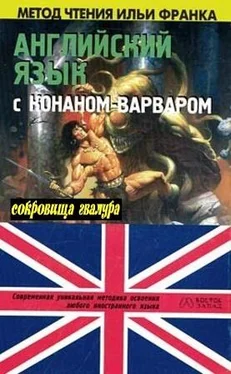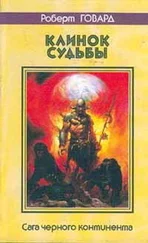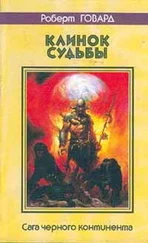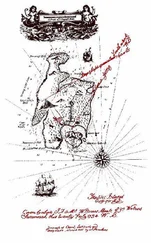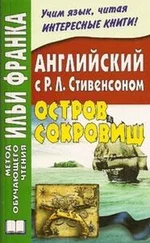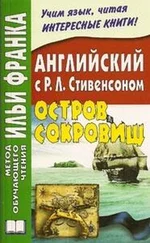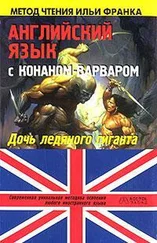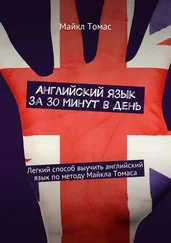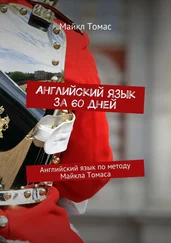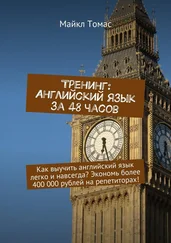Yelaya was coldly beautiful, even in death (Елая была холодно красива, даже в смерти). Her body was like alabaster, slender yet voluptuous (ее тело было подобно алебастру, стройное, но тем не менее роскошное; voluptuous — чувственный, сладострастный; пышный, роскошный; возбуждающий чувственное желание /о фигуре, формах тела/ ); a great crimson jewel gleamed against the darkly piled foam of her hair (огромный малиновый /драгоценный/ камень мерцал на фоне пушистой, с темным оттенком, пены ее волос; pile — куча; пух, шерсть;darkly — с темным оттенком ).
neither [ˈnaɪðə], decay [dɪˈkeɪ], voluptuous [vəˈlʌpʧuəs]
It was no effigy of stone or metal or ivory. It was the actual body of a woman, and by what dark art the ancients had preserved that form unblemished for so many ages Conan could not even guess. The very garments she wore were intact — and Conan scowled at that, a vague uneasiness stirring at the back of his mind. The arts that preserved the body should not have affected the garments. Yet there they were — gold breast-plates set with concentric circles of small gems, gilded sandals, and a short silken skirt upheld by a jeweled girdle. Neither cloth nor metal showed any signs of decay.
Yelaya was coldly beautiful, even in death. Her body was like alabaster, slender yet voluptuous; a great crimson jewel gleamed against the darkly piled foam of her hair.
Conan stood frowning down at her (Конан стоял, неодобрительно глядя на нее /сверху/ вниз; to frown — смотреть неодобрительно; хмурить брови ), and then tapped the dais with his sword (а затем обстукал помост мечом; to tap — вынимать пробку; постукивать, обстукивать ). Possibilities of a hollow containing the treasure occurred to him (ему в голову пришли возможности о полости = пришла мысль о возможной полости , содержащей сокровища; to occur — случаться; приходить на ум ), but the dais rang solid (но помост звучал, как цельный; solid — твердый; сплошной; цельный, без пробелов; to ring — звучать ). He turned and paced the chamber in some indecision (он повернулся и в какой-то нерешительности измерил комнату шагами; to pace — шагать; измерять шагами ). Where should he search first, in the limited time at his disposal (где ему искать сначала при ограниченном времени в его распоряжении)? The priest he had overheard babbling to a courtesan had said the treasure was hidden in the palace (жрец, болтовню которого с куртизанкой он подслушал, говорил, что сокровище спрятано во дворце; to overhear — подслушать; нечаянно услышать ). But that included a space of considerable vastness (но это включало в себя пространство значительных размеров; to include — включать в себя, заключать; vast — обширный, громадный; безбрежный, пространный ). He wondered if he should hide himself (он задался вопросом, а не спрятаться ли ему) until the priests had come and gone (пока не придут и не уйдут жрецы; to go — идти; уходить ), and then renew the search (а потом возобновить поиски). But there was a strong chance that they might take the jewels with them when they returned to Keshia (но был серьезный риск/большая вероятность, что они могут забрать драгоценности с собой, когда будут возвращаться в Кешу; strong — сильный; значительный; серьезный; chance — случайность; шанс, возможность, вероятность; риск ). For he was convinced that Thutmekri had corrupted Gorulga (ибо он был убежден, что Тутмекри подкупил Горулгу).
courtesan [ˌkɔ:tɪˈzæn], considerable [kənˈsɪdərəbl], corrupt [kəˈrʌpt]
Conan stood frowning down at her, and then tapped the dais with his sword. Possibilities of a hollow containing the treasure occurred to him, but the dais rang solid. He turned and paced the chamber in some indecision. Where should he search first, in the limited time at his disposal? The priest he had overheard babbling to a courtesan had said the treasure was hidden in the palace. But that included a space of considerable vastness. He wondered if he should hide himself until the priests had come and gone, and then renew the search. But there was a strong chance that they might take the jewels with them when they returned to Keshia. For he was convinced that Thutmekri had corrupted Gorulga.
Conan could predict Thutmekri's plans, from his knowledge of the man (Конан мог предсказать планы Тутмекри по своим знаниям этого человека = по тому, что он знал об этом человеке ). He knew that it had been Thutmekri who had proposed the conquest of Punt to the kings of Zembabwei (он знал, что это был Тутмекри, который = именно Тутмекри предложил завоевание Пунта королям Зембабвей), which conquest was but one move toward their real goal (завоевание которого было лишь одним шагом к их истинной цели; move — движение; шаг ) — the capture of the Teeth of Gwahlur (захвату Зубов Гвалура). Those wary kings would demand proof that the treasure really existed before they made any move (эти осторожные короли потребовали бы доказательства того, что сокровище действительно существует, прежде чем они предприняли бы какие-либо действия; to make a move — предпринять действие/попытку ). The jewels Thutmekri asked as a pledge would furnish that proof (драгоценности, которые Тутмекри попросил в качестве залога, предоставили бы это доказательство; to furnish — снабжать, доставлять; предоставлять ).
knowledge [ˈnɔlɪʤ], goal [ɡəul], exist [ɪɡˈzɪst]
Conan could predict Thutmekri's plans, from his knowledge of the man. He knew that it had been Thutmekri who had proposed the conquest of Punt to the kings of Zembabwei, which conquest was but one move toward their real goal — the capture of the Teeth of Gwahlur. Those wary kings would demand proof that the treasure really existed before they made any move. The jewels Thutmekri asked as a pledge would furnish that proof.
With positive evidence of the treasure's reality (при несомненном доказательстве о реальности сокровищ; positive — позитивный, реальный; несомненный, определенный; evidence — ясность, наглядность; доказательство, подтверждение ), the kings of Zimbabwei would move (короли Зимбабвей начали бы действовать; to move — двигать; начинать действовать ). Punt would be invaded simultaneously from the east and the west (в Пунт вторглись бы одновременно с востока и запада), but the Zembabwans would see to it that the Keshani did most of the fighting (но зембабвийцы позаботились бы о том, чтобы кешанцы выполнили большую часть военных действий; to see to smth. — присматривать за чем-л., заботиться о чем-л.; to do — делать; выполнять, осуществлять, исполнять; fighting — бой, сражение; битва, война ), and then, when both Punt and Keshan were exhausted from the struggle (а потом, когда как Пунт, так и Кешан были бы истощены сражениями; both… and — как…, так и; struggle — борьба; сражение, битва ), the Zembabwans would crush both races (зембабвийцы сокрушили бы оба народа; to crush — давить, дробить; сокрушить, уничтожить;race — племя; народ, нация ), loot Keshan and take the treasure by force (ограбили бы Кешан и захватили бы сокровища силой; by force — силой ), if they had to destroy every building and torture every living human in the kingdom (/даже/ если им пришлось бы уничтожить каждое здание и замучить каждого человека в королевстве; to have to do smth. — быть должным, обязанным, вынужденным что-л. делать; to torture — пытать; мучить ).
Читать дальше
